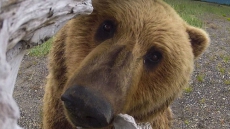Altering the pitch of your voice can fundamentally change the way you speak, says a study, suggesting that others are then able to pick up on these vocal cues to figure out who is actually in charge.
"Our findings suggest that whether it is parents attempting to assert authority over unruly children or negotiations between heads of states, the sound of the voices involved may profoundly determine the outcome of those interactions," said Sei Jin Ko, psychological scientist and lead researcher from California-based San Diego State University in the US.
It was former British prime minister Margaret Thatcher who inspired researchers to investigate the relationship between acoustic cues and power.
Ko, along with Melody Sadler of San Diego State and Adam Galinsky of Columbia Business School, designed two studies.
In the first experiment, they recorded 161 college students reading a passage aloud and captured baseline acoustics.
The participants were then randomly assigned them to play a specific role in an ensuing negotiation exercise.
Students assigned to a "high" rank were told to go into the negotiation imagining that they either had a strong alternative offer, valuable inside information or high status in the workplace.
Low-rank students, on the other hand, were told to imagine they had either a weak offer, no inside information or low workplace status.
The students then read a second passage aloud as if they were engaged in negotiations with their imaginary adversary and their voices were recorded.
Comparing the first and second recordings, the researchers found that the voices of students assigned to high-power roles tended to go up in pitch, become more monotone (less variable in pitch) and become more variable in loudness than the voices of students assigned low-power roles.
"Amazingly, power affected our participants' voices in almost the exact same way that Thatcher's voice changed after her vocal training," said Galinsky.
A second experiment revealed that listeners, who had no knowledge of the first experiment, were able to pick up on these power-related vocal cues to determine who did and did not have power.
"These findings suggest that listeners are quite perceptive to these subtle variations in vocal cues and they use these cues to decide who is in charge," Galinsky added.
The new research was published in Psychological Science, a journal of the Association for Psychological Science.





